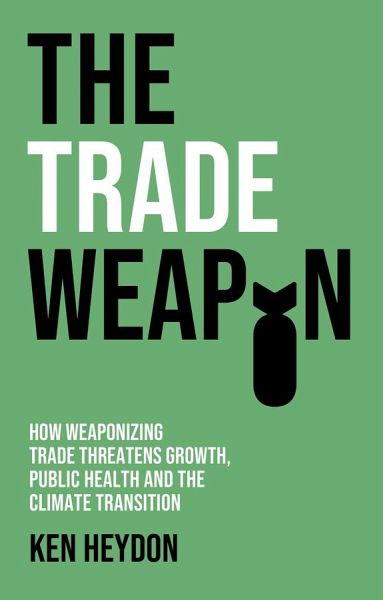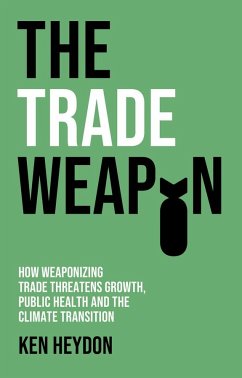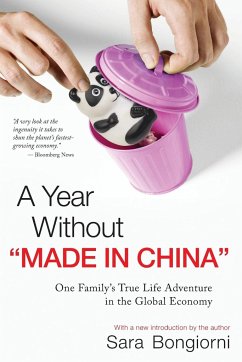
The Trade Weapon
How Weaponizing Trade Threatens Growth, Public Health and the Climate Transition
Versandkostenfrei!
Versandfertig in über 4 Wochen
63,99 €
inkl. MwSt.
Weitere Ausgaben:

PAYBACK Punkte
32 °P sammeln!
Prompted by geostrategic rivalry and the war in Ukraine, COVID-19 and the climate transition, trade policy is increasingly being weaponized. This trend towards protectionist capture and retaliation is self-sabotaging and bad for growth. But there is another way.In this hard-hitting book, Ken Heydon offers alternatives to the trade weapon: the need for diplomatic carrots to accompany the sanctions stick; for resilience in supply chains rather than self-sufficiency through ill-advised reshoring and friend-shoring; for multilateral WTO remedies to rule breaking rather than unilateral penalties in...
Prompted by geostrategic rivalry and the war in Ukraine, COVID-19 and the climate transition, trade policy is increasingly being weaponized. This trend towards protectionist capture and retaliation is self-sabotaging and bad for growth. But there is another way.
In this hard-hitting book, Ken Heydon offers alternatives to the trade weapon: the need for diplomatic carrots to accompany the sanctions stick; for resilience in supply chains rather than self-sufficiency through ill-advised reshoring and friend-shoring; for multilateral WTO remedies to rule breaking rather than unilateral penalties in the name of national sovereignty; and for direct action on environment and public health goals rather than the blunt tool of trade restriction.
But, to restrain the damaging subordination of trade policy to other ends, governments must address the discontents of trade and do better at helping losers, adjusting to technological change and making the case for open markets. Atstake are three decades of income gains from globalization and the ability to deal effectively with the climate transition and the next pandemic.
In this hard-hitting book, Ken Heydon offers alternatives to the trade weapon: the need for diplomatic carrots to accompany the sanctions stick; for resilience in supply chains rather than self-sufficiency through ill-advised reshoring and friend-shoring; for multilateral WTO remedies to rule breaking rather than unilateral penalties in the name of national sovereignty; and for direct action on environment and public health goals rather than the blunt tool of trade restriction.
But, to restrain the damaging subordination of trade policy to other ends, governments must address the discontents of trade and do better at helping losers, adjusting to technological change and making the case for open markets. Atstake are three decades of income gains from globalization and the ability to deal effectively with the climate transition and the next pandemic.













